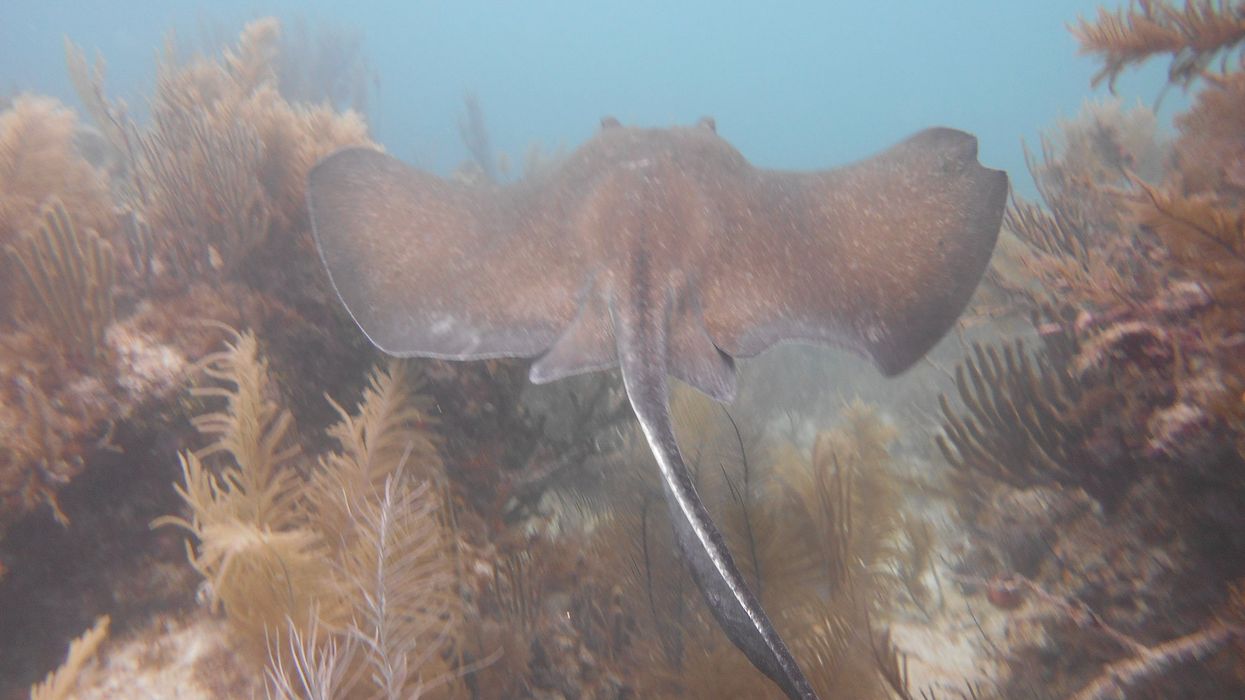
maggieavery via iStock / Getty Images Plus

A female stingray has managed to get pregnant despite not having access to any male stingrays, which has baffled scientists. The experts suspect that the stingray either got pregnant from a very rare virgin miracle birth or an interspecies impregnation.
Charlotte is a female stingray at the Aquarium & Shark Lab in Henderson, North Carolina. Charlotte is a round stingray indigenous to the coastal waters of the tropical and subtropical parts of the northeastern Pacific Ocean.
Charlotte — believed to be between 12 and 16 years old — recently got pregnant and is carrying between three and four pups, according to CBS News. She is expected to deliver her babies within two weeks.
However, experts have no idea who the father is — or if there even is a father. Charlotte has had no access to male stingrays to get pregnant.
"The unique thing about Charlotte is we do not have a male ray," said Brenda Ramer, founder and executive director of Team ECCO at the aquarium.
In fact, Charlotte has not shared a tank with a male stingray for at least eight years.
As to how the stingray got pregnant, scientists have two very different hypotheses.
Ramer noted that while there are no other male stingrays there are two "very young male sharks."
Ramer noted that the young sharks have already started biting Charlotte — a sign of shark mating.
"We didn't think anything about it until one day we were kind of like, 'Oh my gosh. Sharks bite when they mate,'" Ramer explained. "There is a potential she mated with one of these young male sharks."
The other possible explanation for the unusual pregnancy could be a very rare, virgin miracle birth.
"Pretty confident that this is parthenogenesis. And parthenogenesis literally translates into virgin birth or miracle birth," Ramer told the Associated Press. "It is very rare to happen."
The National Library of Medicine defines parthenogenesis as: "An asexual reproduction in which a female can produce an embryo without fertilizing an egg with sperm. In Greek, it means the virgin creation. It occurs naturally in some jawed vertebrates such as the whiptail lizard, but in mammals, it is an unnatural event."
According to CBS News, "In this process, smaller cells separate from the mother's eggs are created that then merge with the egg to create offspring. According to National Geographic, this creates offspring that are 'similar to the mother but not exact clones.' Sharks, which are very closely related scientifically to rays, have been documented as undergoing this process."
Dr. April Smith, executive director at the North Carolina Science Trail, wrote, "First, you should know that parthenogenesis is asexual reproduction of an organism in which a female produces an embryo without a male present to fertilize the egg. This means the offspring are, typically, all female, and this occurs in a situation where there are no males present (i.e., zoo/aquarium usually, or perhaps a secluded natural environment like the deep sea). It’s a survival mechanism that allows for the preservation of a species."
Charlotte the stingray, possibly impregnated by shark, about to give birth at NC aquariumwww.youtube.com
Like Blaze News? Circumvent the censors, sign up for our newsletters, and get stories like this direct to your inbox. Sign up here!